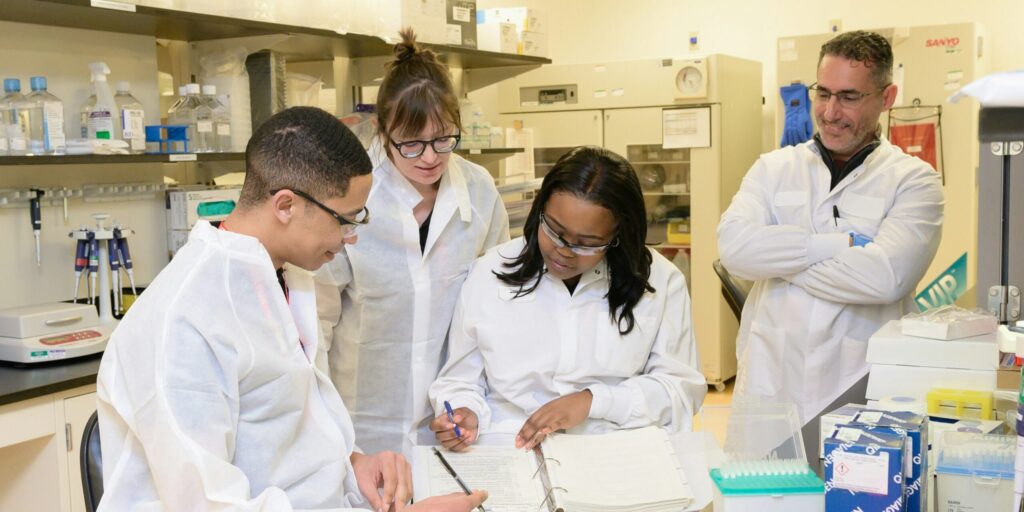In a groundbreaking development for cancer research, scientists have successfully harnessed artificial intelligence (AI) and precision medicine to create highly personalized treatment plans for cancer patients. This breakthrough, achieved by a team of researchers at the Massachusetts Institute of Technology (MIT), is expected to revolutionize the way doctors approach cancer treatment, offering hope for more effective therapies and improved patient outcomes.
AI in Cancer Diagnosis and Treatment
Artificial intelligence has already made waves in healthcare, with its ability to analyze vast amounts of data and identify patterns that might be invisible to the human eye. Now, AI is being integrated into cancer research to not only enhance early diagnosis but also improve treatment accuracy. The new AI-driven system developed by MIT researchers uses genomic data from patients’ tumors, along with detailed medical histories, to recommend highly specific therapies tailored to each individual.
The AI model processes data from thousands of patient records, identifying the genetic mutations and molecular pathways that drive the cancer. Based on this information, it can predict which therapies will be most effective. By leveraging vast databases of treatment outcomes, the AI system can even suggest combination therapies that might be more successful than traditional treatment methods.
Precision Medicine: A Customized Approach
Precision medicine, which tailors treatments based on individual genetic profiles, is becoming an increasingly important approach to cancer care. Unlike the traditional “one-size-fits-all” treatment plans, precision medicine takes into account a person’s genetic makeup, lifestyle, and environment. By understanding how each patient’s unique biology interacts with cancer cells, doctors can provide a more targeted treatment that minimizes side effects and maximizes effectiveness.
The integration of AI into precision medicine allows for even more refined treatment plans. As AI continues to evolve, it can predict how a patient’s cancer will respond to certain drugs, which can save valuable time and resources. This technology also opens the door for personalized immunotherapy, where a patient’s immune system is trained to fight cancer cells more effectively.
Improving Early Detection and Treatment Outcomes
One of the key benefits of combining AI with precision medicine is its potential to dramatically improve early cancer detection. The earlier cancer is diagnosed, the more successful treatment is likely to be. The AI system developed at MIT is capable of analyzing a patient’s blood samples and imaging scans to detect cancer at its earliest stages—sometimes even before symptoms appear. This early detection can lead to more timely interventions and significantly improve survival rates.
In addition, AI can help doctors monitor patients throughout their treatment, adjusting therapies as needed based on real-time data. With AI’s ability to continuously learn and improve, its integration into cancer care is expected to result in more accurate predictions of treatment success and fewer instances of relapse.
A Global Impact on Cancer Research
While the MIT breakthrough is still in the early stages, the potential global impact is enormous. Researchers believe that this approach could be adapted for other types of cancer, offering a more personalized, effective approach to the disease across multiple cancer types. Furthermore, AI-driven precision medicine could be scaled to low-resource settings, providing more affordable treatment options and expanding access to cutting-edge therapies in developing regions.
Looking ahead, this collaboration between AI and precision medicine offers the promise of revolutionizing cancer care. It also opens up exciting possibilities for future advancements in other diseases, where personalized treatments based on genetic profiles and AI analysis could become the standard of care.
As researchers continue to refine and expand this technology, the hope is that the fight against cancer will be forever changed, with more patients benefiting from treatments that are uniquely suited to their genetic makeup.


